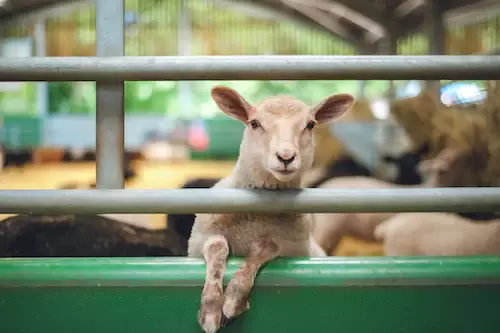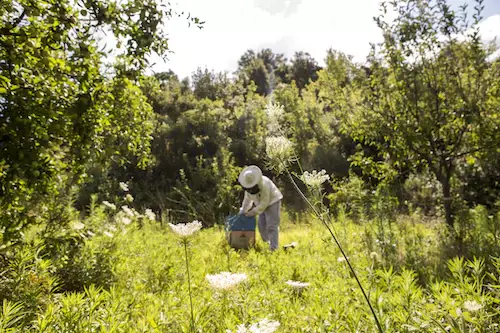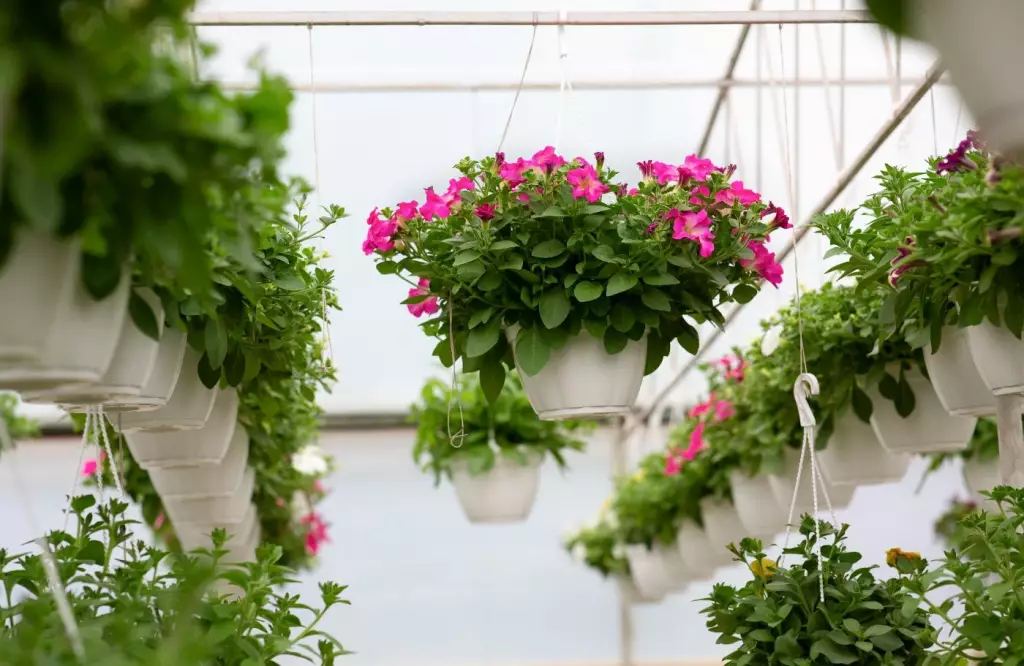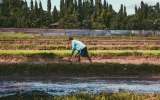What Qualifies As a Smallholding In the UK?
Smallholdings are an increasingly popular way of life in the UK, offering an alternative to traditional farming or rural living. But what qualifies as a smallholding in the UK in terms of the size of the land, the types of animals and crops, and the regulations you must comply with? Let's find out.
In the UK, a smallholding is usually between 1 and 50 acres, used for agricultural or horticultural activities. It is typically used to produce food for personal use or sale at a local market. A smallholding can also include a dwelling, such as a cottage or mobile home, for the owner to live in.
Keeping livestock such as pigs, sheep, and chickens, as well as beekeeping and fish farming, are a few examples of smallholdings in the UK. Keep reading to know what qualifies them as smallholdings in the United Kingdom.
Summary
- A smallholding is of a minimum size of 0.4 hectares, or 1 acre, to be used for its potential in farming in the UK.
- A 50-acre plot of land in the UK is used to keep livestock such as pigs, sheep, and chickens.
- Beekeeping, fish farming, and mushroom cultivation are also qualified to be smallholdings in the UK.

On this page:
Smallholding In The UK
A smallholding in the UK is defined as a minimum of 0.4 hectares (1 acre) and a maximum of 20 hectares (50 acres) of land used for farming activities. This is because the UK is densely populated, with a large population and limited space. Due to this, it is important to ensure that any smallholding is of a minimum size so that it can be used to its fullest potential.
Furthermore, this size is small enough that it can be managed by small-scale farmers and is still enough to provide a sustainable livelihood. This minimum size also ensures that smallholdings are viable and effective and that they can provide a reliable source of food in the local area.
If you plan to prepare, store, and sell food in a farm shop, you must register with your local environmental health department. They will conduct an inspection of your property and assist you in conforming to the Food Safety Act and Food Hygiene Regulations. In order to register in time, you should get in touch with your local administration early in the planning process. Registration is free of charge.
Below is a list of what qualifies as a smallholding in the UK that's within the land size requirement and has different types of animals and crops to produce income.
Livestock qualifies as a smallholding in the UK
In the UK, a smallholding is defined as a landholding of up to 50 acres that is primarily used to keep livestock. Livestock on a smallholding may include pigs, sheep, cattle, chickens, and other animals and can be used for a variety of purposes, including milk production, wool production, and meat production.
Livestock of this size is not typically kept on a large scale, so it is a viable choice for those looking to keep their animals sustainably.

Crops production qualifies as a smallholding in the UK
Crops are an important part of smallholdings in the UK, as they provide a stable source of income and can be used to produce a variety of food products. Crops, such as vegetables, fruit, and herbs, are a great way to diversify a smallholding, as they can be grown in relatively small spaces and require little investment in terms of resources.
Furthermore, these crops can be sold directly to local markets, allowing smallholders to benefit from the increased demand for locally produced food. Additionally, they offer a great opportunity to experiment with different methods of farming, such as organic and permaculture.
Dairy or egg production qualifies as a smallholding in the UK
Dairy and egg production qualify as smallholdings in the UK because they are both small-scale agricultural activities that require relatively small amounts of land and labor. Dairy and egg production offers an opportunity for smallholders to produce quality products from their land and sell them locally or directly to consumers.
This can allow smallholders to generate an income from their land, while also helping to keep local food production and consumption within their community.
Beekeeping qualifies as a smallholding in the UK
Beekeeping qualifies as a smallholding in the UK because it is a form of agriculture, and it is possible to make a profit from it. Beekeeping involves the keeping of bees and their products, such as honey and beeswax, and it requires a good understanding of bee behavior and husbandry.
In addition to providing a source of income, beekeeping can also provide environmental benefits, such as the pollination of crops, and the promotion of biodiversity. Beekeeping can therefore be a rewarding and sustainable form of smallholding in the UK.

Keeping rare breeds of animals qualifies as a smallholding in the UK
Keeping rare breeds of animals qualifies as a smallholding in the UK because it is a way of preserving endangered species and maintaining genetic diversity in the animal population. It also provides an important source of food for local communities, as well as a unique educational experience for visitors to the smallholding.
By keeping rare breeds of animals, smallholders can help ensure the survival of species that would otherwise become extinct, and provide an invaluable service to the local community.
Fish farming qualifies as a smallholding in the UK
Fish farming in the UK is considered a smallholding because it is a small-scale agricultural enterprise. It involves the breeding, rearing, and harvesting of fish and other aquatic animals such as mollusks and crustaceans in a controlled environment.
Fish farming is becoming increasingly popular in the UK due to its low cost and low environmental impact, as well as its potential to provide a steady source of income. It is also a viable way to supplement a family's income and provide a sustainable source of food, as well as helping to preserve natural fish stocks.
Forestry qualifies as a smallholding in the UK
Forestry qualifies as a smallholding in the UK because it can provide many of the same benefits as traditional smallholdings. Forestry is a great way to produce timber, which can be used for building, fuel, and even furniture. It can also provide a natural habitat for wildlife and create a pleasant and interesting landscape for people to enjoy.
Furthermore, the carbon sequestration of forestry can help reduce greenhouse gas emissions and combat climate change. Ultimately, forestry is a great way to produce sustainable products that can benefit both the environment and local communities.
Woodland management qualifies as a smallholding in the UK
Woodland management involves many activities, such as planting trees, maintaining access, thinning, and controlling pests. These activities are all aimed at creating a sustainable and productive environment that can be used for a variety of purposes. This could include recreational activities such as walking and cycling, as well as timber production and the sale of firewood.
In addition, woodland management can also provide an additional source of income as it can be used to generate income from timber sales, carbon offsetting, and other services.
Small-scale horticulture qualifies as a smallholding in the UK
Small-scale horticulture in the UK qualifies as a smallholding because it meets the criteria of the legal definition of a smallholding, which states that a smallholding must be used for agriculture or horticulture, must be actively managed, and must be of a size that is sufficient to provide a livelihood.
Horticulture is used to cultivate plants and flowers, so it meets the criteria of being used for agriculture or horticulture. Small-scale horticulture is also actively managed, with gardeners tending to the plants and flowers regularly.

Mushroom cultivation qualifies as a smallholding in the UK
The cultivation of mushrooms requires a small amount of land, limited capital investment, and labor. Once established, mushroom cultivation can be an extremely profitable venture and can provide the smallholder with a regular income. In addition, the product can be sold to local markets, restaurants, and other outlets, allowing the smallholder to increase their income.
Small-scale wind or solar energy production qualifies as a smallholding in the UK
Small-scale wind or solar energy production is an increasingly popular smallholding activity in the UK. This type of energy production is beneficial to both the environment and the economy, as it reduces the reliance on large-scale energy production sources. It also provides a steady income stream for those who have the resources to install and maintain the necessary equipment.
Additionally, it can help reduce the cost of energy bills and contribute to the local economy by providing low-cost energy to local businesses.
